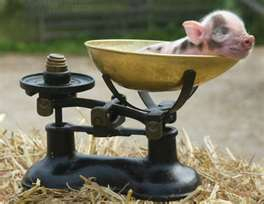 Easing biosecurity controls may allow imports of fresh pork products that bring with them a deadly disease
Easing biosecurity controls may allow imports of fresh pork products that bring with them a deadly disease
It reeks of a decision made before the consultation was even startedIan Walker, Bay pig farmer
One of Hawke’s Bay’s only pig farmers fears his livelihood and the industry throughout the country could be ruined if biosecurity controls are relaxed to allow imports of fresh pork products which could carry a deadly disease.
Ian Walker, whose Eskhill Piggery is one of only two piggeries in Hawke’s Bay, believes Ministry of Agriculture and Forestry plans could lead to the introduction of Porcine Reproductive and Respiratory Syndrome.
Pork New Zealand, fearing the consequences of changes to import health standards for uncooked pig meat and by-products from countries such as the US, Canada, Mexico, and Brazil, and from Europe, in May won an interim court preventing implementation of the plans.
The industry says risk-management plans are inadequate, and Mr Walker says the imported products wouldn’t “even” have to meet the standards required of New Zealand producers. Not only would it put the New Zealand industry at risk from the disease, he says, but it would also enable imported product to be “dumped” on the New Zealand consumer, risking the commercial viability of the local industry, which has already struggled in an environment in which production cost increases rocket ahead of retail prices.
The syndrome, PRRS, or “Pers” as it is called in conversation, was first recognised in the US in the mid-1980s, becoming known as mystery swine disease, later blue-ear disease.
It enables pigs’ body defence mechanisms to be attacked, promoting growth of bacteria and other viruses, and the animals waste and die of secondary infection, mainly pneumonia.
No vaccine exists, and Mr Walker says that if stock are infected, the only way to limit the spread is to “slaughter the whole herd”.
The livelihoods of about 130 pig farmers providing employment for about 2000 people are at stake, he says – and New Zealand could lose an industry in which about 35,000 sows introduce about 750,000 pigs a year.
Australasia has so far uniquely escaped the syndrome’s spread across the globe, and Mr Walker, one of a group who went to Wellington yesterday to discuss the issue with MPs at Parliament, says the Australian industry is “aghast” that New Zealand is contemplating anything that could risk the arrival of the disease.
The biggest risk comes from the likelihood that the local herd will consume scraps of the imported pork.
Mr Walker says MAF claims the chances of significant infection are a remote one in 1227 years, but the industry’s own advisers say it would be here within three to four years.
MAF has gone against the advice and been selective to the point where it addressed only three of 29 recommendations made by its own review, Mr Walker says, adding: “It reeks of a decision made before the consultation was even started.”
Mr Walker says all farmers need to “get angry,” because of the wider impacts on such areas as arable farming (with up to 60 per cent of grain supplied to pig farming), and the potential for relaxed controls for other imports as governments get into global trade-off.
“We believe this is the thin edge of the wedge,” he says.